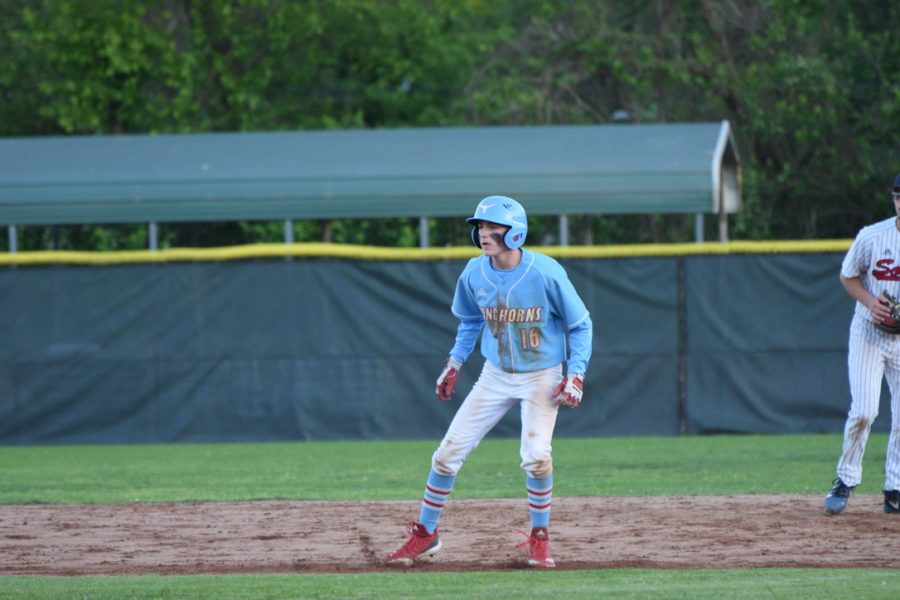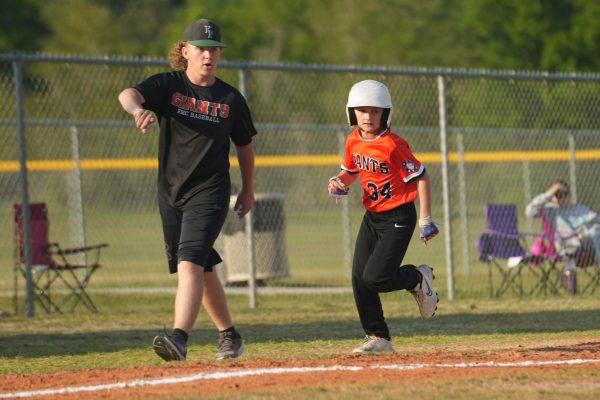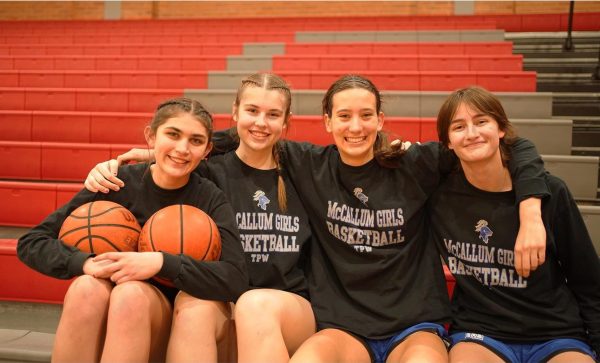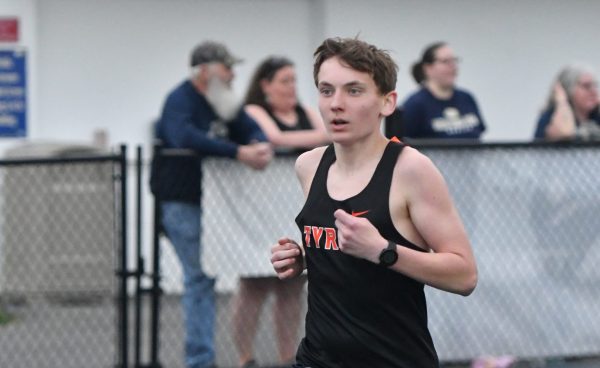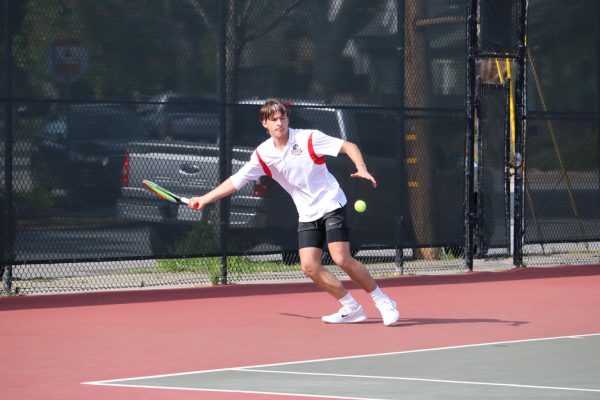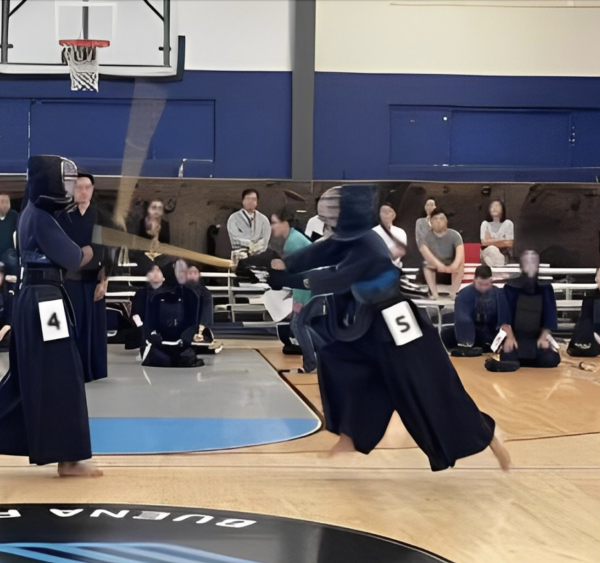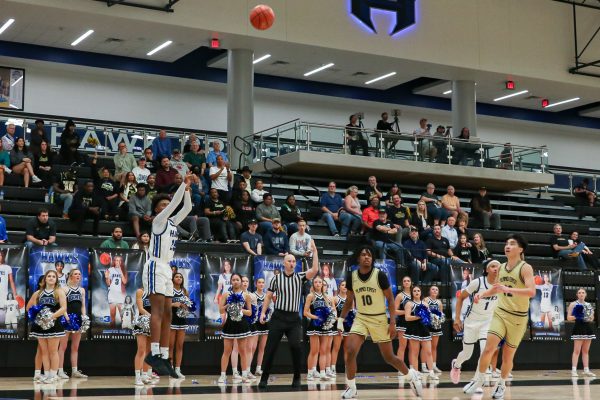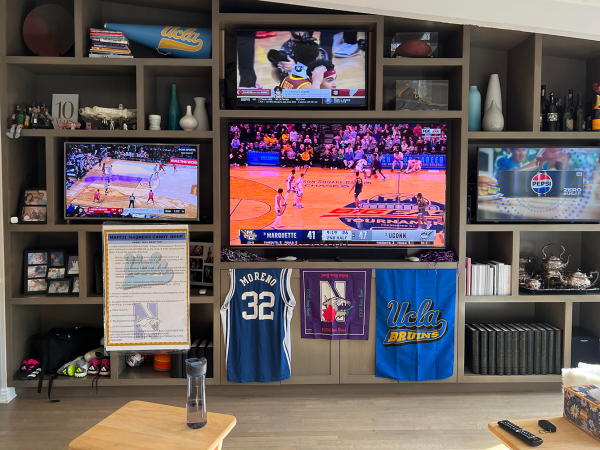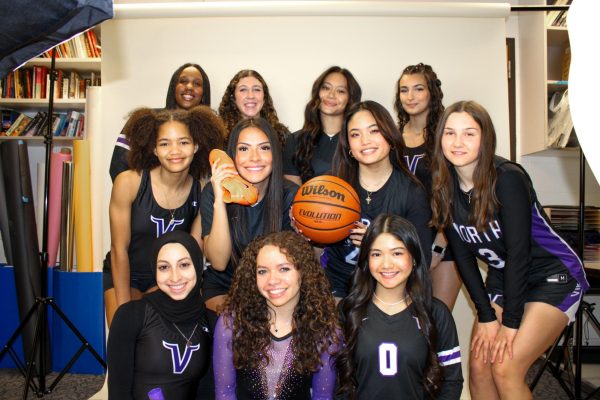From Longhorns to Big Greens: senior Elliot Krewson’s college admissions journey amidst the pandemic
Courtesy of Elliot Krewson
Preparing to run to the next base, senior Elliot Krewson watches the next pitch to the batter. Krewson has been playing baseball since he was 3 years old. “Winning a game, especially when your team is struggling, is a great feeling. However, winning isn’t all about the win,” Krewson said. “It’s about gaining that momentum and just getting closer with the team because when you aren’t having a good season, you need little things like that to boost the team.”
January 25, 2021
Senior and shortstop Elliot Krewson knocked the ball out of the park during the COVID-19 pandemic, earning admission to Dartmouth College, a Division I Ivy League program, to pursue his dream of playing baseball. Krewson made school history as the first-ever to play on Dartmouth Big Greens.
Krewson, who has been playing baseball since preschool, says being accepted to Dartmouth is one of his biggest accomplishments.
“My whole life, I’ve always wanted to go to an Ivy League school. That moment for me came when I got the athletic offer from the baseball coach; it was a dream come true,” Krewson said.
Krewson’s inspiration to play ball came from his grandfather, who played for the Cardinals.
“My grandfather] died when I was around nine. I missed many moments that I wanted to have with him. But, I felt like I’d play for him. When I got on the field, I felt like it was for him—having him there in my heart, even though he’s passed away. It’s been meaningful to me to have someone to look up to,” Krewson said.
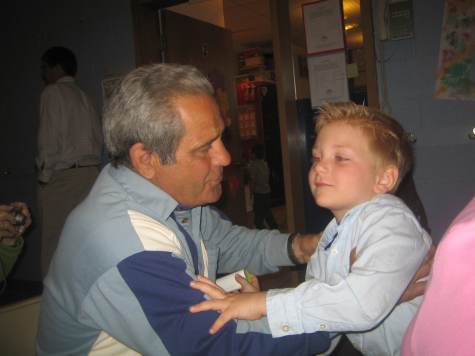
Krewson says that he had to overcome several obstacles to achieve his goal. One of the biggest challenges was his height.
“I’m a smaller guy. I’m only 5 feet 2 inches [tall]. So it’s hard to be noticed by coaches when you’re not very big in size, especially by division one coaches. And I’d always be fighting against people who are, like 6 feet 4 inches or 6 feet 5 inches, and it’s hard to be better than them,” Krewson said.
The selection process for prospective student-athletes is different from regular college admissions. For baseball, one waits to hear from the University Baseball Scout, who evaluates the students’ athletic strengths. The admissions board then considers how the student’s talent on the baseball field aligns with their academic strengths, leading to an acceptance or denial. For Krewson, the process was competitive, challenging and mostly virtual.
“[COVID-19] and the economic downturn took away money that schools will be able to offer to kids. So, Division I schools were not making scholarship offers to kids [in] my grade. That was a disappointment,” Krewson said. “However, just around that time [of the pandemic], I had shifted my college focus to only Ivy League schools because they weren’t accepting seniors to return to the fifth year on the team. So it worked out that way for me.”
When Krewson was recruited by Dartmouth, math teacher and head baseball coach Andrew Jett was proud of his accomplishment.
“He worked very hard to get to the place that he is and deserves all of the recognition that he gets,” Jett said. “Many kids think that [college] coaches are just looking for the best athlete or the kid that throws the hardest. However, when coaches come and watch players, they are watching how the kid warms up, how the athlete communicates with their coach and teammates, how they hustle on and off the field.”
When coaches come and watch players, they are watching how the kid warms up, how the athlete communicates with their coach and teammates, how they hustle on and off the field.
— baseball coach Andrew Jett
While the pandemic became an obstacle for all, Krewson did not view it as such. Jett recognizes Krewson’s perseverance as he rigorously continued with his practices and search for colleges.
“It could have been very easy for him to settle with a college after our season was cut short last year [after the pandemic]. However, he continued to push and work hard through the summer and he ended up getting what he deserved,” Jett said. “Elliot is a leader. He is always pushing his teammates and leading by his actions. Elliot is the last one at practice almost every day. He leads by example. It is easy for [upperclassmen] students to get a big head and think that the underclassmen owe them something. Elliot does not approach his team that way.”
Even though the most significant factor leading to his acceptance may seem to be baseball, Krewson believes his academics and ACT score helped him stand out.
“I had to get a good ACT score. I studied a lot. This year, I had to take up a very tough class load. It’s stressful, but that’s one of the things that they look at the most is your strength of schedule. So I had to load my course load with AP classes, that’ll show them that I am also competitive academically,” Krewson said.
Getting accepted into a Division I baseball program along with being accepted into an Ivy League college is a prestigious and a rare feat since most Ivy League schools have less than a 10 percent acceptance rate. To achieve this, Krewson had to learn to balance sports and academics.
“It is difficult [to find a balance]. I’ll be in school until right around 1 p.m. and then right after that, I’ll hit [baseballs] and then I’ll work out. I do this every single day. So I don’t get home until 8 p.m. every day [and] then I do my homework,” Krewson said. “There’s not a lot of room for social life. You make a lot of sacrifices. It’s the sacrifices that get you to the next level.”
Majoring in Computer Science and minoring in Business, Krewson has set two career path choices for himself: a software development career and a professional baseball player. He plans to play baseball with the goal of continuing as long as he can.
“[My future] depends on how I do in college. If I get drafted [to play professional baseball], I would love to play. But if I don’t see [my baseball career] going anywhere, I feel like having a Dartmouth education would be great. So either way, there is a win-win.”
Krewson, who is now a Dartmouth commit, would like to encourage his fellow students to continue to work hard.
“Don’t ever stop working. And if you think you’re working enough to get [somewhere], you probably are not. If you find a hardship, or you feel like you’ve hit a brick wall, find a way to adapt and work around it,” Krewson said.
This story was originally published on Pathfinder on January 22, 2021.

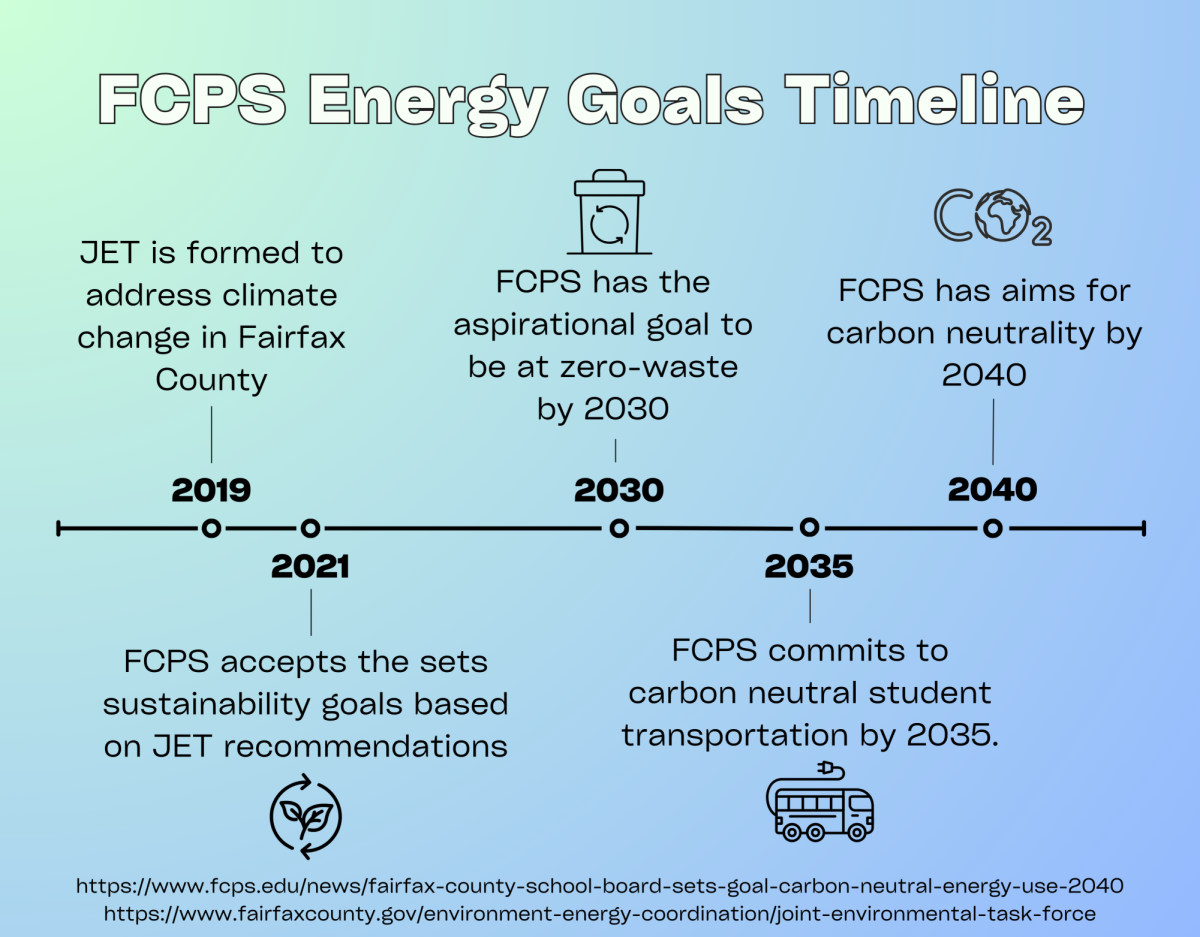






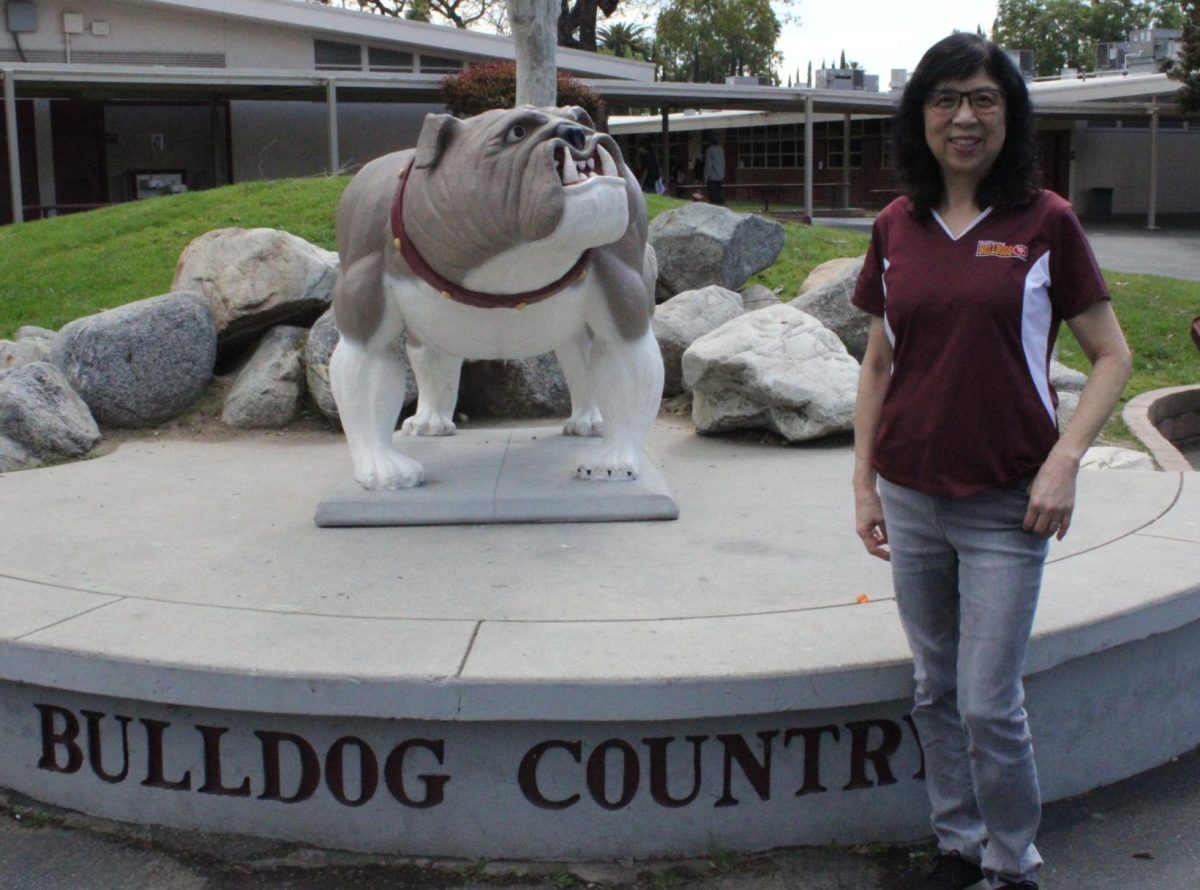


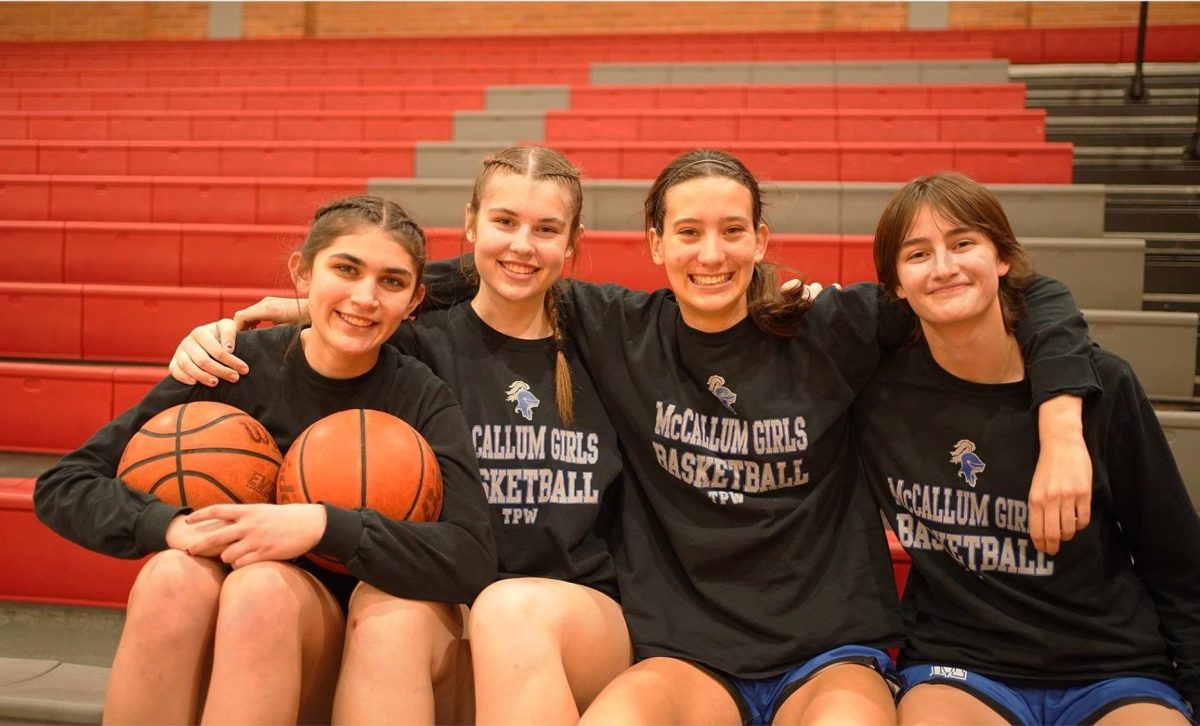
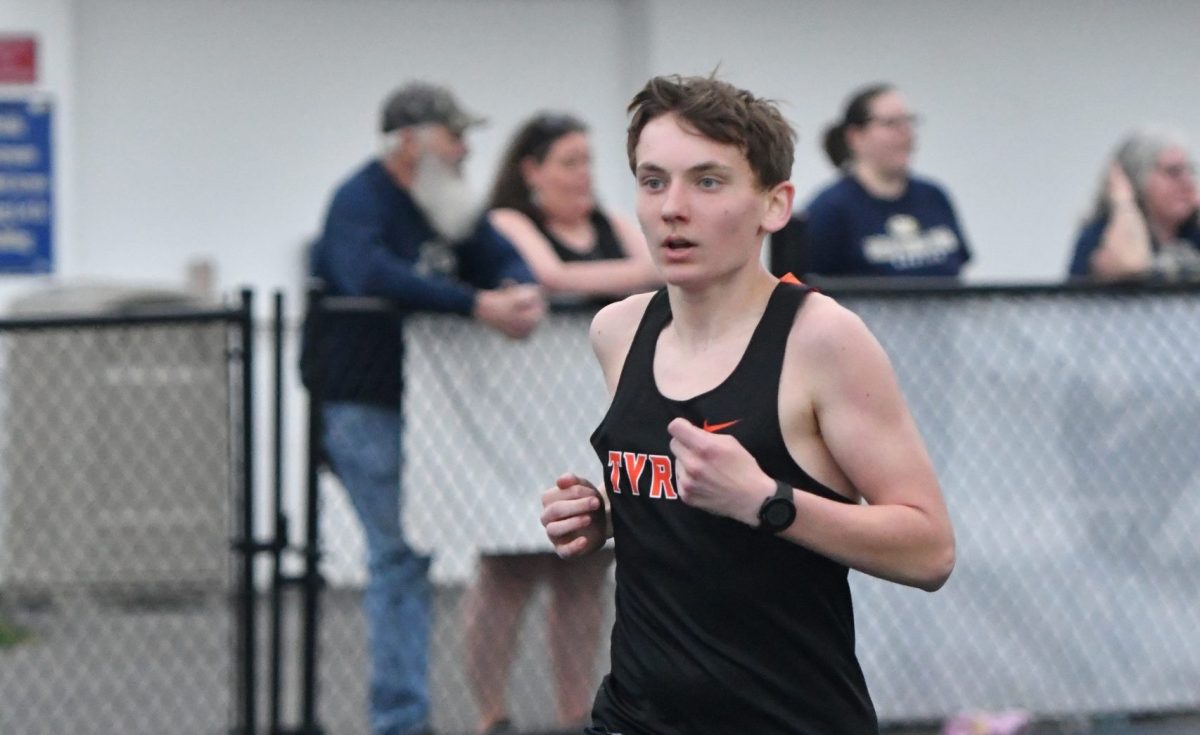

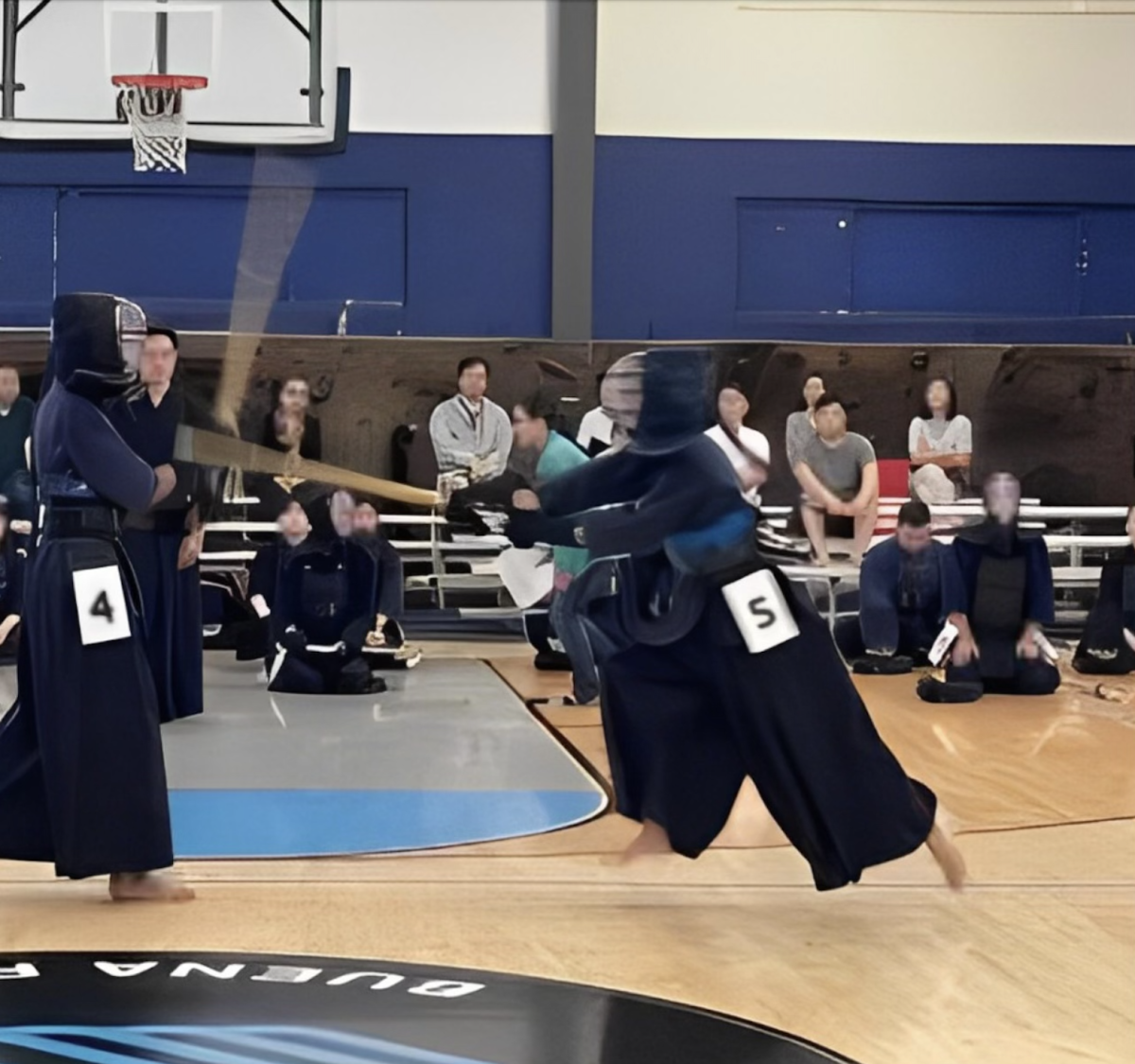


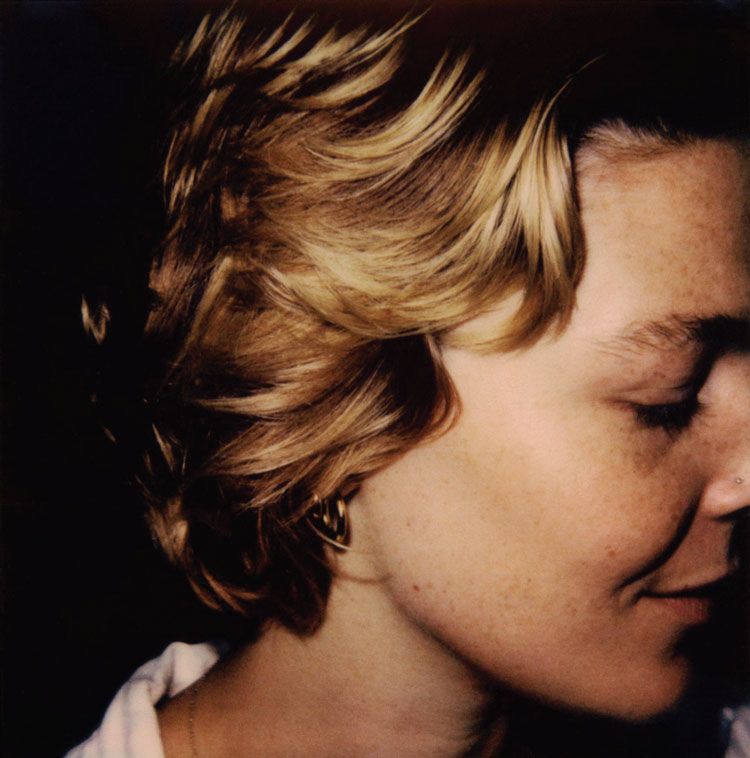













![IN THE SPOTLIGHT: Junior Zalie Mann performs “I Love to Cry at Weddings,” an ensemble piece from the fall musical Sweet Charity, to prospective students during the Fine Arts Showcase on Wednesday, Nov. 8. The showcase is a compilation of performances and demonstrations from each fine arts strand offered at McCallum. This show is put on so that prospective students can see if they are interested in joining an academy or major.
Sweet Charity originally ran the weekends of Sept. 28 and Oct. 8, but made a comeback for the Fine Arts Showcase.
“[Being at the front in the spotlight] is my favorite part of the whole dance, so I was super happy to be on stage performing and smiling at the audience,” Mann said.
Mann performed in both the musical theatre performance and dance excerpt “Ethereal,” a contemporary piece choreographed by the new dance director Terrance Carson, in the showcase. With also being a dance ambassador, Mann got to talk about what MAC dance is, her experience and answer any questions the aspiring arts majors and their parents may have.
Caption by Maya Tackett.](https://bestofsno.com/wp-content/uploads/2024/02/53321803427_47cd17fe70_o-1-1200x800.jpg)
![SPREADING THE JOY: Sophomore Chim Becker poses with sophomores Cozbi Sims and Lou Davidson while manning a table at the Hispanic Heritage treat day during lunch of Sept 28. Becker is a part of the students of color alliance, who put together the activity to raise money for their club.
“It [the stand] was really fun because McCallum has a lot of latino kids,” Becker said. “And I think it was nice that I could share the stuff that I usually just have at home with people who have never tried it before.”
Becker recognizes the importance of celebrating Hispanic heritage at Mac.
“I think its important to celebrate,” Becker said. “Because our culture is awesome and super cool, and everybody should be able to learn about other cultures of the world.”
Caption by JoJo Barnard.](https://bestofsno.com/wp-content/uploads/2024/01/53221601352_4127a81c41_o-1200x675.jpg)




